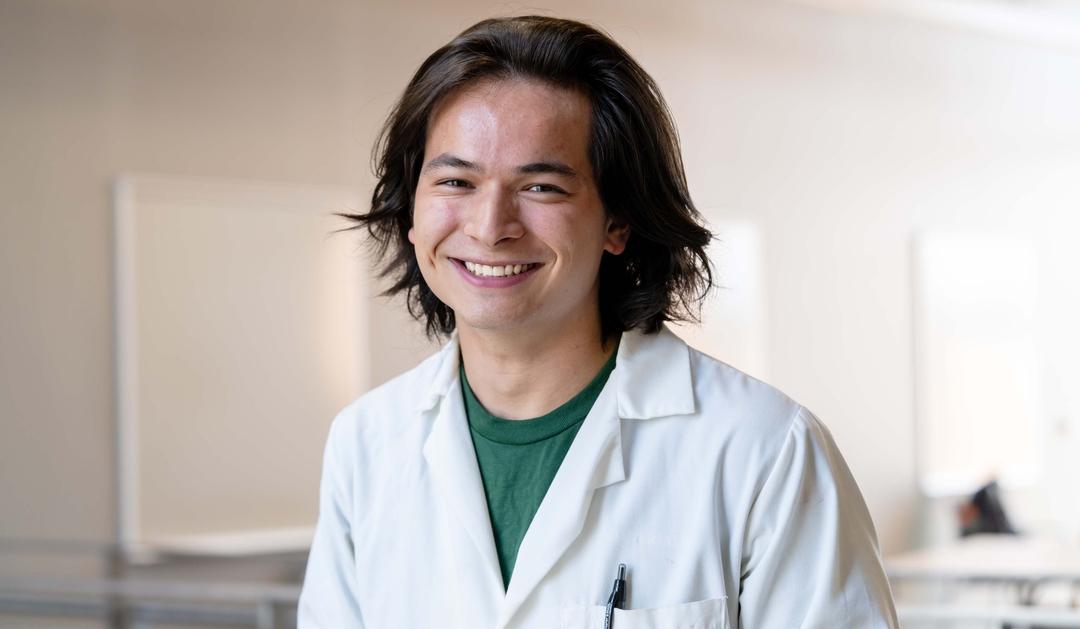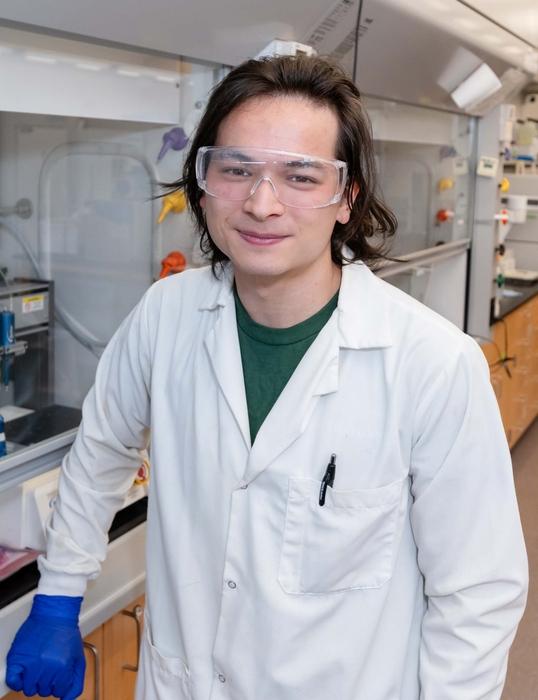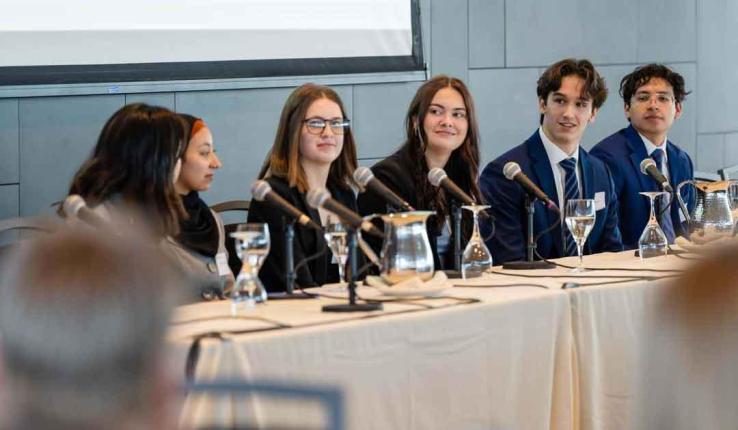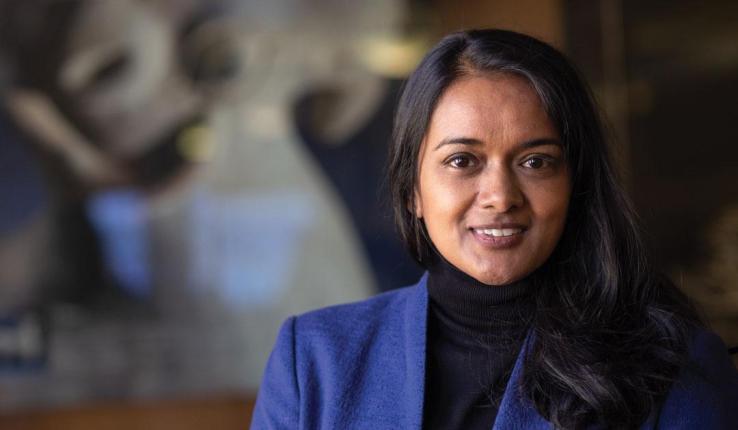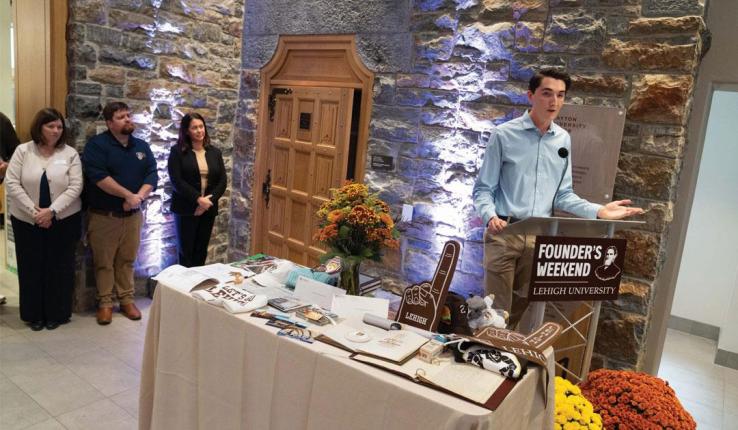His research has taken him from Lehigh’s campus to the Philippines and across the United States, most recently to the University of California, Berkeley as a 2025 Amgen Scholar.
The Amgen Scholars Program enables undergraduate students to step into some of the world’s premier research universities and institutions to conduct hands-on research in the lab alongside top faculty, participate in seminars and networking events and take part in symposia with their peers and leading scientists, according to the Amgen Scholars website.
As part of the program, O’Connell spent 10 weeks during the summer in the Ting Xu Group lab at UC Berkeley researching self-assembling block copolymer nanocomposite materials for polymer films.
The group works on designing, characterizing and understanding complex systems of synthetic polymers, nanoparticles and biomolecules to develop new functional materials that exhibit novel electronic, photonic and biological properties, according to the Ting Xu Group website.
O’Connell was working with the group to develop methods for block copolymers and nanoparticles to self-assemble into highly ordered thin films. The films can be used as barrier films to stop gas permeation, capture volatile organic compounds or block certain wavelengths of light as polarizers, he said.
He worked alongside other student researchers in the lab to screen new materials to expand the scope of solvents and small molecules that can be used in these highly ordered films.
O’Connell said his time conducting materials science research as an Amgen Scholar was a positive experience that felt close to home, since he is a materials science student researcher at Lehigh.
On campus, O’Connell’s research focuses on promoting cartilage regeneration by altering the surfaces of solvent-cast 3D-printed scaffold implants in the lab of Lesley Chow, associate professor in the departments of Bioengineering and Materials Science and Engineering.
The Chow Lab focuses on designing and synthesizing modular biomaterials for tissue engineering and regenerative medicine applications, according to the lab’s website.
O’Connell’s research in the lab over the course of three semesters has focused on promoting cartilage formation by modifying the surface modulus of 3D-printed scaffolds. He works to soften the scaffold surface using hydrophilic polymers while maintaining the mechanical properties of the bulk scaffold.
He presented this research at the David and Lorraine Freed Undergraduate Research Symposium in April, which takes place annually and offers undergraduate researchers an opportunity to present their work from a broad spectrum of engineering disciplines, celebrating their innovations and discoveries.
The research O’Connell conducts in The Chow Lab on a micro level—fabricating small implants to try to regenerate cartilage and bone—has the potential to help people on a macro level, which motivates him to keep going.
“Hopefully in the later stage, these [scaffolds] can be implanted in actual people and help them to regenerate this tissue,” he said.
O’Connell was selected to participate in a National Science Foundation Research Experiences for Undergraduates (NSF REU) program during summer 2024. He spent 10 weeks at the University of Louisville helping research the effects on compressive strength, autogenous shrinkage and drying shrinkage of concrete mixed with biochar—a natural, carbon-rich material.
“We were putting biochar into concrete to try and reduce its shrinkage, since concrete shrinkage causes cracks,” O’Connell said. “If your concrete breaks, you have to replace it more often. You don’t need to replace it as often if it doesn’t shrink.”
Prior to the NSF REU program, O’Connell completed a Global Social Impact Fellowship at Lehigh that allowed him the opportunity to conduct fieldwork in the Philippines. Impact Fellows are a highly self-selected cohort of students from all disciplines across the university, focused on addressing sustainable development challenges in low-resource and middle-income countries and communities across the world.
As part of the first team of students working on the “Philippines: AgriWrap – Converting Food Waste into Biodegradable Packaging Products” project, O’Connell helped convert agricultural waste into a more sustainable packaging material to reduce the amount of single-use packaging waste produced and promote a clean environment in the Philippines.
Outside of the lab, O’Connell is passionate about music, playing trumpet in a jazz combo band on campus, and enjoys spending time outdoors through his involvement in the university’s outing club and rock climbing club.
O’Connell said his future goals include earning a Ph.D. in polymer research and continuing work that has a positive impact on human health.
“It is easy for me to see people who are in pain and live with this condition, and it is something I can try and help with,” O’Connell said.


